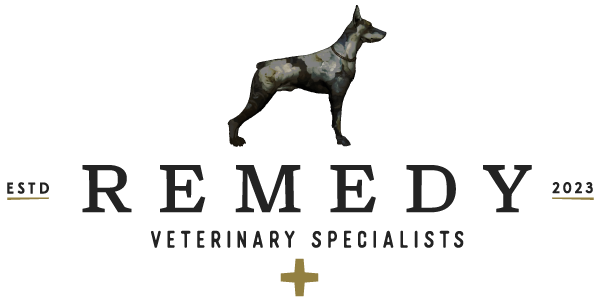Myasthenia Gravis
Introduction to Myasthenia Gravis in Dogs
Myasthenia Gravis is often an autoimmune disorder where the immune system attacks the neuromuscular junction (NMJ), impairing the neurotransmitter acetylcholine and leading to muscle weakness. If MG affects the esophagus (megaesophagus), it can cause regurgitation.
Around 70-80% of dogs can fully recover from Myasthenia Gravis, usually over 6 to 8 months. Some may need long-term medication. Even post-recovery, megaesophagus might persist in certain dogs.
Dogs with megaesophagus have an elevated risk of developing pneumonia, which, while generally treatable, can be serious. In some cases, a feeding tube (PEG tube) is required for safe food and medication administration.
Diagnosis of Myasthenia Gravis
MG can be diagnosed in several ways:
Tensilon Test: A quick, albeit less reliable, test used for severe cases or medication adjustment.
Acetylcholine Receptor Antibody Test: The most common and definitive test, results can take up to two weeks. This test may be repeated during treatment to monitor improvement.
Electrodiagnostics and Muscle Biopsy: These specialized tests are used in rare cases. Your neurologist will discuss these options if necessary.
Prognosis
These diseases are treatable. Most dogs will do well, becoming normal in the first month of treatment. We very slowly lower their drug doses over a period of about 6 to 8 months. Ideally, before we stop drugs entirely, we will repeat a spinal tap and/or joint taps. Some dogs do need a small amount of medication lifelong. Very rarely a patient does not respond to therapy.
Treatment
Acetylcholinesterase Inhibitors (Neostigmine, Pyridostigmine)
These medications increase acetylcholine levels at the neuromuscular junction (NMJ). Their dosing requires careful adjustment over time, especially as the dog begins to recover. A dose that was effective last month might become excessive as the dog's condition improves. Therefore, maintaining close communication with your neurologist is crucial. Urgently contact the clinic if symptoms like vomiting, diarrhea, drooling, or weakness occur.
Immunosuppressants
Medications such as Prednisone and Mycophenolate are often used to treat autoimmune disorders like Myasthenia Gravis. However, caution is necessary in cases where the patient has pneumonia, as these drugs can complicate pneumonia treatment. Immunosuppressants also influence the results of the acetylcholine receptor antibody test. Therefore, patients should be off these medications for several weeks before repeating the test.
Monitoring
Regular check ups with your veterinarian will be important in monitoring your pet’s health. Especially early on. Dr. Jurney usually rechecks her patients 1 week after the initial diagnosis and then monthly for the first several months. Further recheck schedule will be dependent on how severely your dog is affected.
Contact Us:
Mon \ Fri: 8:30am - 5:30pm
Sat: by appointment only
Phone: (415)967-3303
Email: frontdesk@remedyvets.com





